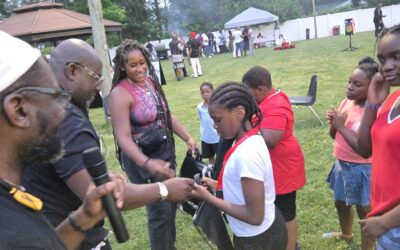Being text of an address to the audience of the first National Association of Seadogs’ organised, HIV/AIDS TRAINING WORKSHOP FOR YOUNG PERSONS by the NAS Capoon, Andrew Onyearu at Uyo, Akwa Ibom State on 4th February, 2005.
Introduction and Background
The Chairman, Special Guests of Honour, Guest Speakers and resource persons, my Lords, Spiritual and Temporal, distinguished Ladies and Gentlemen, it is my pleasure and privilege to welcome you, on behalf of the National Association of Seadogs, to its first national workshop on HIV/AIDS. The biographical details of this organisation will already have been more graphically explained elsewhere and I need not trouble you about that. As NAS Capoon, I am sure that you will permit me a little latitude to talk about some of the work that this organisation has already commenced and proposes to continue to pursue in the immediate future. What is important about this little expose is that the work of the organisation is all inter-linked, each having some direct connection to the reason that we are here today.
NAS is involved in two legal initiatives. The first is the Judicial Challenge Initiative (JCI). This would represent the organisation’s participation in the area of strategic impact litigation and will see the organisation use litigation in asserting the rule of law in deterring circumstances relating to bad governance and social injustice including the issues arising from HIV/AIDS. The second legal initiative is a project called Legal Assistance and Prison Reform Initiative (LAPRI) by which the organisation, utilising some of the legal resources available to it, would provide legal assistance to individuals and disadvantaged persons, communities and groups and by so doing, not only contribute to the debate on legal and judicial reform, but also, hopefully, will use such resources and interest in ameliorating the circumstances of others. I believe that it is easy to see the connection between the target group of this workshop and the circumstances that these particular projects have been described to cover.
Of direct relevance to the question of awareness (and the subsequent benefit of empowerment) is another programme of the organisation called “Community Causes”. This is a programmed designed to see the organisation act as the voice or mouthpiece for the underprivileged by the identification of serious infrastructural and other community defects; conceiving and formulating remedy for that community or group of people; identifying the appropriate public authorities and petitioning the authorities on behalf of the community or group of persons. By the conclusion of this conference, which is intended as the in orientation, nationally, of the organisation’s already ongoing work in the area of HIV/AIDS, “community causes” is expected to represent a quite crucial dimension of the work of this organisation in that respect.
NAS’s work in area of charity endeavour has a long history, dating back over the last 40 years. Our humanitarian work has touched the lives of thousands of people in the local and international communities. This has led to the formal incorporation of various charities in Nigeria, Europe and United States. NASIC, our charity arm based in the United Kingdom and Nigeria is at the forefront of some of the charity work that we currently undertake. NASIC have taken isolated leprosy settlements and have linked their inhabitants to sources of maintenance, training and development through a number of projects. For completeness, the work in this respect relates to major projects in two Leprosaria in Ijebu-Igbo and Ossiomo in Ogan Agbor, Ogun and Edo States respectively. The existing projects there include a Scholarship Scheme; Semi-skilled Training; Skills Acquisition Training; Stigmatised Sickness Awareness Campaigns; Leprosy Eradication; and Monitoring and Sourcing of funds for those projects. NAS began a 5-year development plan in November 2002, which has seen the availability of the Leprosy Drug (MDT) now in abundant supply. The immediate project includes an Information Technology (IT) or Computer Literacy Programme as part of the skills acquisition programme directed at members of the colony.
NAS’ HIV/AIDS Advocacy Programme
Nigeria is the most populated country in Africa. Undisputed statistics posit that 1 out of every 4 Africans is Nigerian. Of every 5 black people in the world, 1 is Nigerian. HIV/AIDS is a condition that affects human beings. By virtue of its sheer size, adverse social/political developmental conditions aggravated by high levels of poverty, Nigeria was always a potential haven for AIDS once its spread became worldwide.
In the course of the workshop today, various disturbing statistics and information will be produced to you. Those far more technically competent than I will reproduce this information so in that respect, I will confine my observations to those relating to the target group for whom this programme has been designed. Statistics available suggest that people between the ages of 15 and 40 represent the substantial proportion of the 5 or so percent of the 120 million Nigerians now infected with the virus that causes AIDS. We are told that about half of all new infections in the country occur in young people between the ages of 15-24. Young people in that category are to be found essentially in the school population. Professionals working in the area of HIV/AIDS believe that the bigger concern relates to the high level of ignorance and indifference within this population about the dangers of the disease and what can be done to avoid it. The vast proportion of this population is to be found in educational institutions. Nigerian Universities and other tertiary institutions appear to embody the worst of these examples. Professor Ibironke Akinsete whose work in relation to HIV/AIDS is very well known, recently told a seminar at the University of Lagos that: –
“the disease is devastating our University population. We must take the campaign of HIV/AIDS to them (students) in their respective campuses, in their hostels, cafeteria, peer groups, social clubs … we should reach them anywhere that they are ”.
The student population is the most enlightened group in most societies. Their levels of ignorance in Nigeria in relation to HIV/AIDS is both startling and disturbing. It has become imperative that added verve in arresting the growth of the disease is given to the already existing measures that have been put in place in order to heighten awareness.
Government, evidently, is very supportive because in the last few years, greater emphasis is being paid to the containment and combating of HIV/AIDS. This new disposition has enabled NACA, UNAIDS, UNICEF, Civil Society and NGOs working in the area of HIV/AIDS to work together in designing intervention programmes that are aimed at adolescents and young persons. The need for such a concerted approach cannot be over emphasised. There are various aspects of the awareness programme that will inevitably lead to fundamental benefits for young persons. There are various areas of HIV/AIDS issues about which young persons need to be significantly better informed. There are the traditional issues of prevention that have been ventilated with considerate attention over the past few years. Quite importantly, there are other aspects of the HIV/AIDS discuss about which young persons would require to be better informed. I cite, for instance, the question of stigmatisation. As one very erudite professional put it: –
“communities throughout the country continue to stigmatise people living with HIV/AIDS. The stigma associated with HIV/AIDS continues to fuel denial and creates a fear of finding out ones’ HIV/AIDS status. As the stigma persists, so does discrimination against people living with HIV/AIDS. People who are infected and those who are affected maintain a silence that further takes away the urgency to act on the epidemic. Some of the messages on HIV/AIDS continue to create images of infected people as irresponsible people and categorise them in ways that suggest that if one were not within those categories, then the infection would have been unlikely. In a context where stigma abounds, one of the outcomes of such messages has been a hesitance by those that are infected, affected or vulnerable to HIV/AIDS to engage in any form of activism as engaging in such activism would imply that they are living with HIV/AIDS or seeking to condone “irresponsible” behaviour. Stigmatisation has further cost the fight against HIV/AIDS by limiting the role of people living with AIDS could play in busting the myths around AIDS and sharing experiences and lessons in living positively with the virus”.
Better information discouraging stigmatisation will clearly send a message to young people that issues relating to HIV/AIDS are not a “no go” area. Conversely, greater openness will encourage willingness to learn more – knowledge being the single biggest tool against the growth of HIV/AIDS.
There are quite a number of initiatives already in place. The HIV/AIDS Action Plan (HEAP) is a three-year strategy within which the Federal Government has set out to implement over 200 short term and high impact activities in the fight to combat the epidemic. Young persons are specifically targeted by the activities of NACA as well as the State and Local Governments. The National Youth Service Scheme’s Reproductive Health and HIV/AIDS Prevention Project was launched recently. We understand that the programme of HIV advocacy is designed to ensure that over 40,000 of the 100,000 or so graduates that go through the scheme annually are targeted for training to enable them become peer educators with the intention of tutoring, in turn, a minimum of 40 youths in and out of schools each during their service year which is expected to translate to something in the region of 1.6 million young persons being positively influenced.
The National Association of Seadogs is and has been very concerned about the prevalence of HIV/AIDS in Nigeria. Apart from engaging the fight against HIV/AIDS as a serious health and social issue, our extremely large membership base means that proximity to those exposed to or affected by the circumstances must be significantly higher than most other organisations. This concern has driven us to formulate and actively pursue a response to broaden the level of awareness. In the immediate future, we propose to raise to a very prominent level, the advocacy work in influencing behaviour formation as the target of this organisation’s awareness programme. Included in the specific objectives that we hope to achieve would be programmes designed to conduct educational exercises to raise awareness and knowledge of HIV/AIDS issues; to achieve the expansion of sexual education of adolescents in order to enable young people to develop a better understanding and healthy attitude towards sexuality and sexual relations; to foster a positive perception of sexuality amongst adolescents; to foster a sense of responsibility for their own and their parents sexual health and to assist and provide awareness in relation to cultivating and developing interpersonal communication skills underpinning a better understanding of HIV/AIDS issues. We will aim to do so by communication and liaising with identified educational institutions to provide venues for training workshops and awareness about HIV/AIDS issues; to liaise with NGO’s and other civil society organisations involved in HIV/AIDS work to provide training materials and resource persons for training workshops; to coordinate the collection of materials for these workshops; to organise and run workshops in identified institutions; and to arrange adequate publicity for the training workshops.
Conclusion
The fight against AIDS is proceeding proactively on various fronts. It is evident that more has to be done. The Government must re-double its efforts for taking care of those already suffering from the illness. There must be increased and improved provision of subsidised HIV/AIDS treatment for them. Government and Civil Society must create and improve sustained awareness campaigns that will enlarge the knowledge base. With a combined, collected and determined confrontation, there is still a good chance that its deadly advance can be curtailed and halted.
Before I leave you, I must explain the way in which the Seminar’s theme – U R NT Alone – has been published. As you may be aware, it is written in SMS Language. SMS (Short Message Services) is a text messaging service provided with mobile telephones. It made its first recognised presence in Japan amongst young telephone users under the age of 25. They were then referred to as being involved in the “thumb race”. The use of SMS has expanded globally, at an exploding rate, such that it has overtaken most of the leading languages in the world as a vehicle of communication. Nigeria is probably the fastest growing market in telecommunications industry in the world. A substantial part of that market is young people, particularly those within the range that this seminar looks to engage. They, more than most, will quickly discern the message. Our U R Nt Alone Campaign is not new. It started sometime ago in London, United Kingdom. NASIC, i n the later part of the year 2003, NASIC joined the Peabody Trust for the Champions for Change Programme. The Senior Grant co-ordinator Manjeet Edwards was pleased when she said that the
“You are not alone programme has been a valuable and laudable project that has championed change for a large number of people in the community that suffer from AIDS”.
She was commenting on the tremendous work that NASIC did in the London South East area through their programme where AIDS sufferers who became reclusive in their own homes were sensitised to become partners in combating HIV infection in the community. Aisha, one of those who went through the programme and is now a champion for others to come out of isolation said that but for the “You are not alone programme she would still be shrouded in the misery of shame, guilt and depression that affects a lot of AIDS victims”. NASIC has also used the “You Are Not Alone Programme” to inspire youths of mainly ethnic minorities in the Barking and Dagenham areas of London to access educational and training facilities and improve their lives by showing them the joy of achievement, through organised workshops in cultural and art activities.
For the sacrifice that you have made to be here today, an indication not only of your interest, but also of your keenness to contribute to this quite substantial task, I thank you, on behalf of the organisation for your time and patience.
Andrew Obinna Onyearu
NAS CAPOON
NATIONAL ASSOICATION OF SEADOGS
References:
Nigeria: Struggling to promote awareness: IRINnews.org web special on World Aids Day
Dr Omokhudu Idogho: HIV/AIDS Programme Manager Action Aid Nigeria: Daily Trust 21 December 2004



